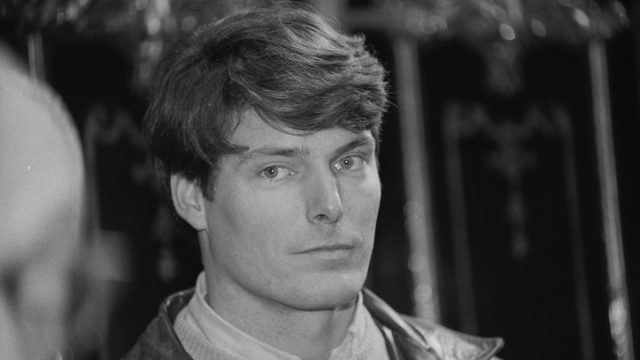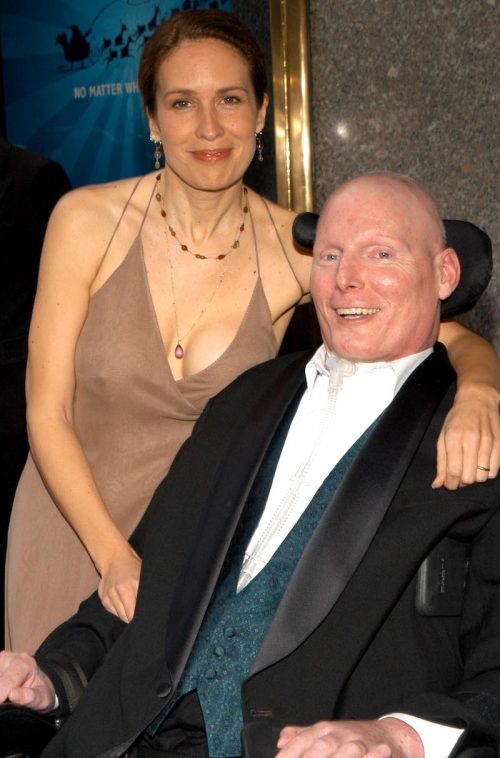The Surprising Reason Christopher Reeve Left Scientology

Some celebrity Scientologists are longtime followers of the controversial religion, while others were members for years before they ended up distancing themselves from it. Lesser known are the experiences of stars who briefly dabbled in the controversial religion, and that group includes Superman actor Christopher Reeve. The late celebrity wrote in his memoir that he was intrigued by the Church of Scientology but decided not to pursue it after something happened during one of their courses to put him off.
Read on to find out how Reeve became interested in Scientology in the first place and what occurred to “devalue [his] belief in the process.”
READ THIS NEXT: Elizabeth Taylor Says Late Husband Told Her to “Go Back” During Vivid Near-Death Experience.
Reeve encountered Scientology in the mid-’70s.

In his 2002 memoir, Nothing Is Impossible: Reflections on a New Life, Reeve wrote about coming across Scientology when he was living in New York City in 1975. By that time, the future star had graduated from Cornell University and studied at Juilliard. As for his budding acting career, he had acted on TV, including on the soap opera Love of Life, and was in rehearsals for a play. He would first play Superman three years later, in 1978.
Reeve was “enjoying [his] life as a young bachelor in the Big Apple” when he was walking to the grocery store one day and saw a man holding a sign that read, “Free personality test, no obligation.” He wrote that he was intrigued and soon found that he had followed the man into the New York headquarters of the Church of Scientology. Inside, he said he filled out a form with personal information, including his address and social security number.
He was attracted to the church’s pitch.

Reeve explained in Nothing Is Impossible that he returned to the Scientology office the next day, because curiosity got the best of him and he wanted to know his “score” from the personality test.
He said he was told instead, “There was no score, no grade, no quantitative measurement, just their assessment: I was obviously deeply depressed, suffering from low self-esteem, and carrying heavy ‘baggage’ around with me, not only from emotional damage in this incarnation but from previous lives as well.” He was also told he should begin “training” at the center.
The Somewhere in Time star wrote that he was “vulnerable to criticism” and began to question whether what he believed about himself up until that point was actually true. He added that he didn’t have a “foundation in religion” or “any sense of spirituality” due to his upbringing. Reeve found the principles of Scientology “logical and highly motivating,” including—as Reeve explained it—the idea that what stops people from experiencing joy is holding on to negativity and not being “clear.”
For more celebrity news delivered right to your inbox, sign up for our daily newsletter.
He lied to a Scientology auditor.

Reeve went on to participate in an “audit.” According to the Scientology website, “The goal of auditing is to restore beingness and ability. This is accomplished by (1) helping the individual rid himself of any spiritual disabilities and (2) increasing individual abilities … Through auditing one is able to look at his own existence and improve his ability to confront what he is and where he is.”
During his audit, Reeve said he was asked to access past lives. “Then my growing skepticism about Scientology and my training as an actor took over,” he wrote. He decided to lie and say that during a past life he was a warship commander in ancient Greece—a story he borrowed from Greek mythology. He wrote that, even though his auditor wasn’t meant to show emotion, he believed that she was moved by the story.
“I didn’t expect my auditor to be familiar with Greek mythology; I was simply relying on her ability, assisted by the E-Meter, to discern the truth,” Reeve recounted in his memoir. According to the Scientology site, an E-Meter is a device that “measures the spiritual state or change of state of a person and thus is of enormous benefit to the auditor in helping the preclear locate areas to be handled.”
“The fact that I got away with a blatant fabrication completely devalued my belief in the process,” Reeve wrote.
He set off on a spiritual journey.

Despite losing his budding faith in it quickly, Reeve wrote in his book that his experience with Scientology could have been “an exception to the rule.” He explained, “Many well-known and highly respected people credit Scientology for success in their careers, in relationships, and especially in their family lives. I fully support whatever belief systems make us better human beings.”
The actor said that the experience was the beginning of his “ongoing search for the meaning of spirituality in my life” and that it took his tragic accident for him to “find the answer.” While participating in an equestrian competition in 1995, Reeve was paralyzed from the shoulders down. In his book, he explained that later in his life, he became a Unitarian. In his book, he wrote that he was attracted to Unitarian Universalism because “you are not presumed guilty when you walk in the door.” Reeve died in 2004 at age 52.